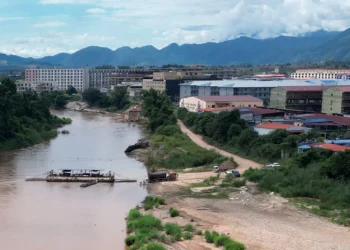The Association of Southeast Asian Nations (ASEAN) has spoken – though not as forcefully as many might have wanted to see. But optimists in the regional grouping believe its message was clear enough to sink in with the military junta in Naypyidaw.
However, the fact that Myanmar security forces still continue to use deadly force to quell pro-democracy demonstrators in many parts of the country certainly defies any optimistic view of the situation.
Yet, as far as people in the Thai Foreign Ministry are concerned, there is still a glimmer of hope that Myanmar could still step back from the brink of total anarchy. According to their reading, the message from ASEAN and statements from some of the more outspoken ASEAN leaders are unmistakable and the military-appointed foreign minister Wunna Maung Lwin has been made to understand full well what the regional grouping and the world want to see happen in Myanmar — an end to violence and a release of detained politicians. A chairman’s statement issued at the March-2 ASEAN foreign ministers’ meeting also expressed the grouping’s readiness to assist in finding a peaceful solution to the crisis.
But would ASEAN just sit and watch how the Tatmadaw, as the Myanmar military is known, will respond? Certainly not, at least as far as Thailand is concerned. For Thailand, the stake is too high to allow the current crisis in Myanmar to escalate.
Thailand and Myanmar share a common border stretching over 2,400 kilometers. Dozens of armed ethnic groups on the Myanmar side of the border have always been a security concern for Thailand while there is always a strong potential of a major influx of Myanmar people into Thailand in the event of full-blown violent conflicts.
Among the ASEAN countries, Indonesia might have seemed most eager in playing a mediating role on the outset of the crisis. However, its Foreign Minister Retno Marsudi’s attempted shuttle diplomacy which culminated in her trilateral meeting with Myanmar’s Wunna Maung Lwin and Foreign Minister Don Pramudwinai at Don Muang international airport on February 24 failed to produce any tangible result. Her earlier request to fly to Naypyidaw was also down. Meanwhile, leaders of Singapore and Malaysia have also been forceful and critical in their public statements on the violence in Myanmar.
Comparatively speaking, Thailand might have appeared more restrained in its formal reaction to the unfolding crisis in its immediate neighbor. In one of his few comments on the violent crackdowns on pro-democracy protests in Myanmar last week, Don stressed the importance of “peace, stability and security in the region.” He also expressed “Thailand’s readiness, as a close neighbor and a fellow ASEAN member, to assist Myanmar in the pursuance of peaceful resolution for the benefit and interest of Myanmar people.”
“In doing so, trust is of vital importance,” he said.
Original Source >>> The Irrawaddy News ( https://www.irrawaddy.com/opinion/guest-column/can-friendly-persuasion-bring-end-myanmars-deadly-stalemate.html )






